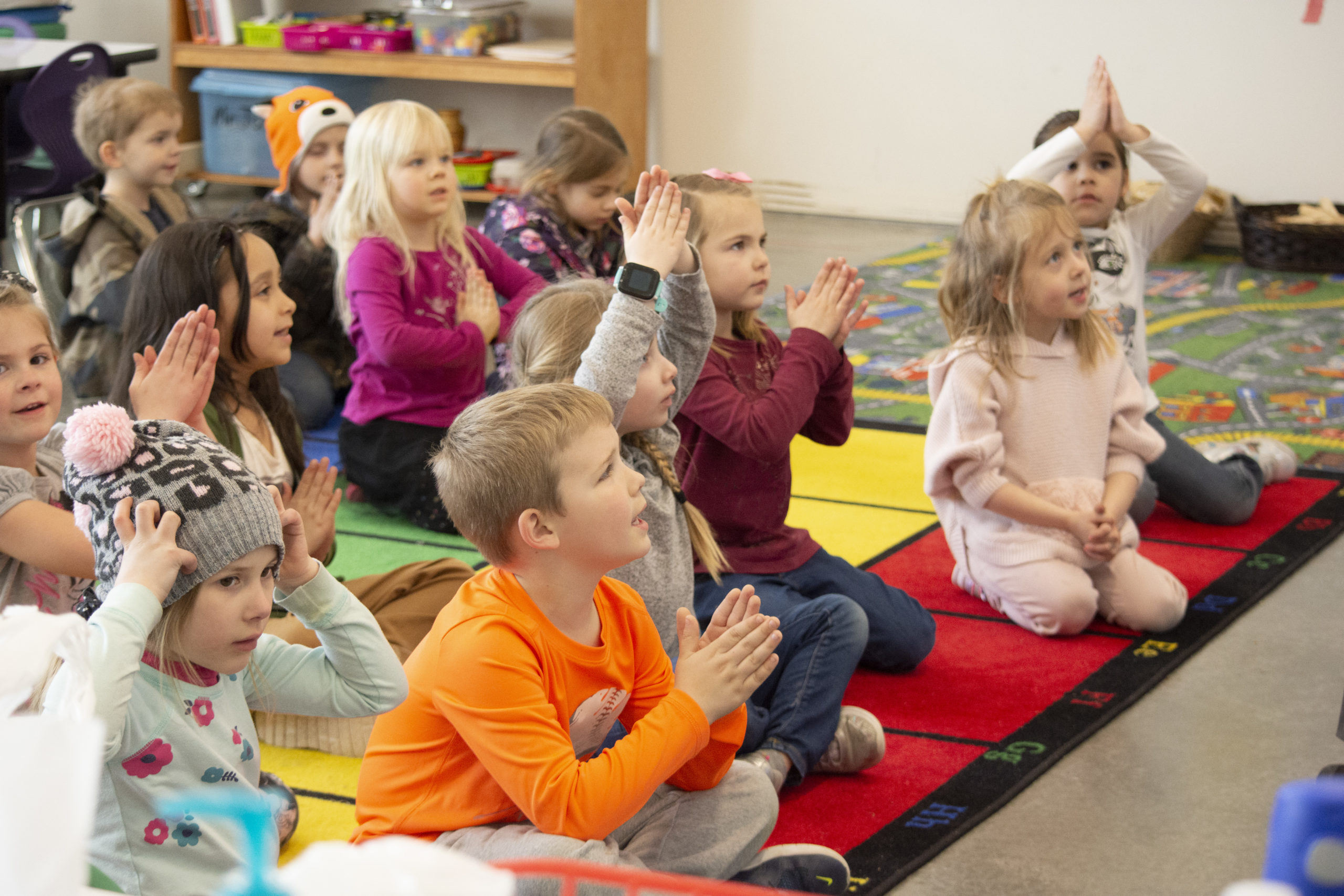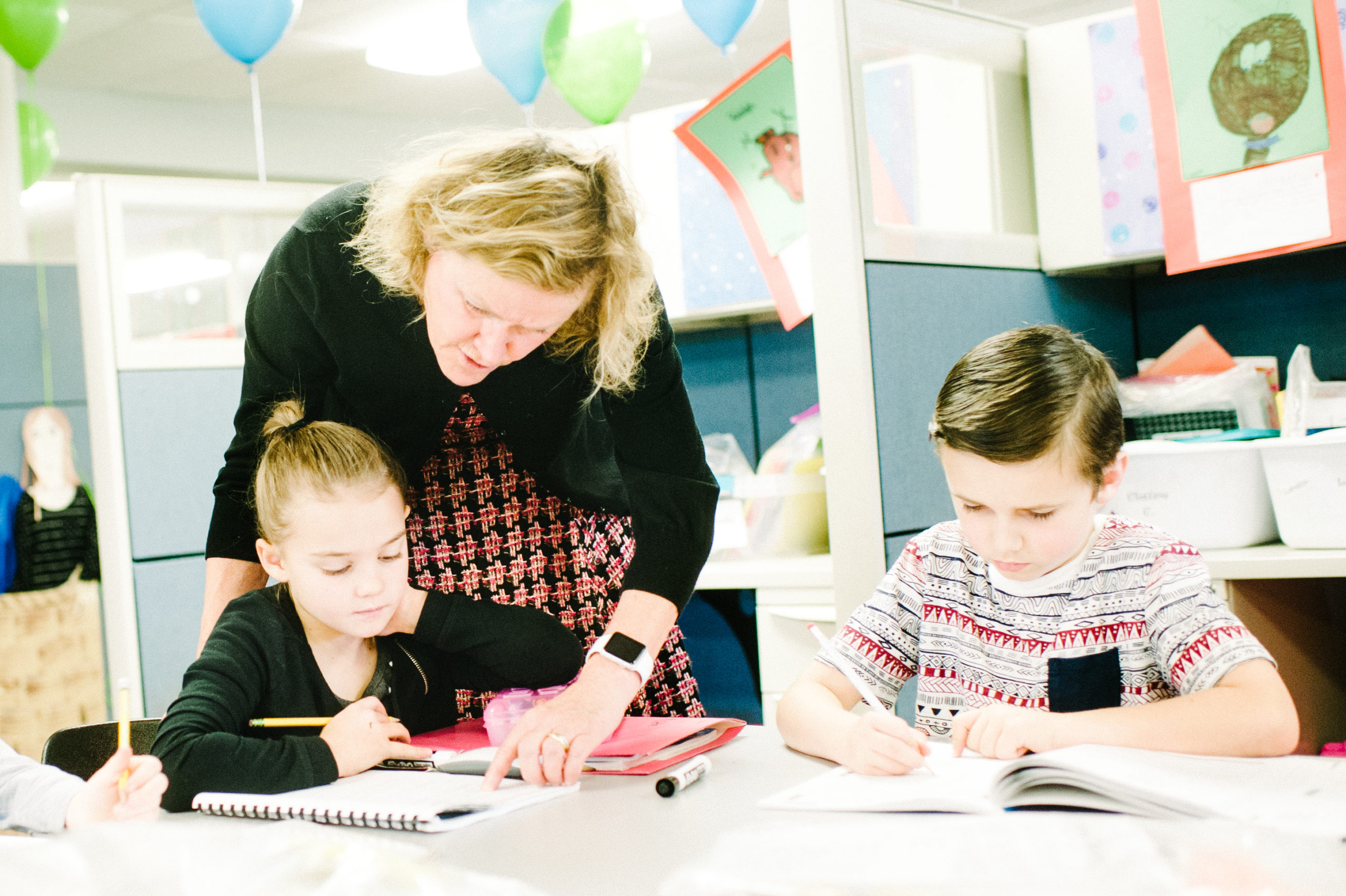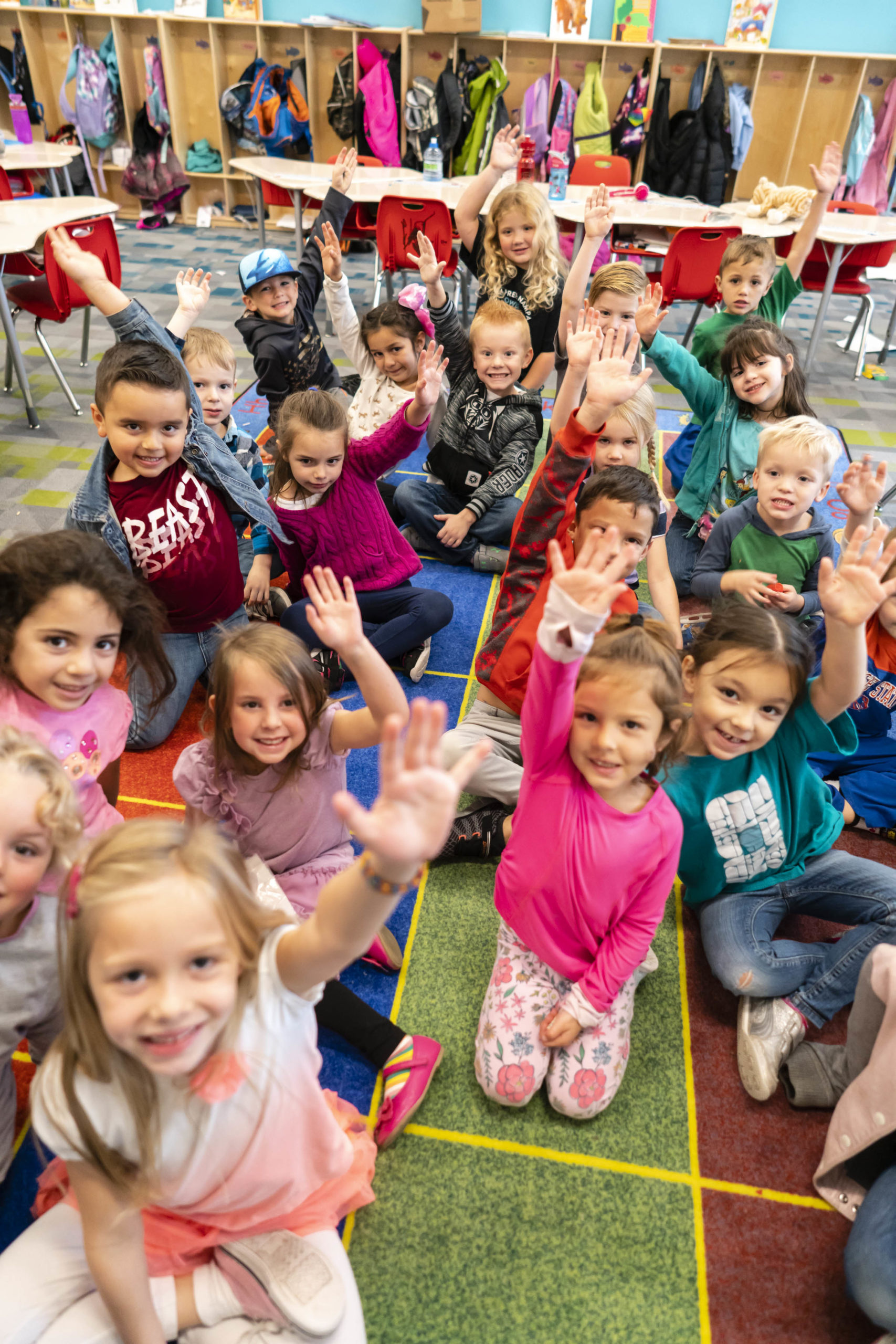
All-Day Kindergarten Pilot Aims to Demonstrate Its Efficacy
When Michelle Ball learned last year that she would receive funding through Bluum from the J.A. and Kathryn Albertson Family Foundation to expand Idaho Falls-based charter school Alturas International Academy’s kindergarten program from half-day to full-day, she was ecstatic.
As a former kindergarten teacher, she knew how big a difference those extra hours could make in the academic and social-emotional development of her students. Given that only 42 percent of Idaho’s youngest students scored at or above grade level on the 2020 Idaho reading Indicator test, the need for effective interventions is evident.
But results during the program’s first year exceeded her wildest expectations, even with the COVID-19 pandemic disrupting the normal flow of learning.
“It was incredible,” said Ball, executive director of Alturas, a K-5 school expanding this fall through high school. “These kindergarten kids made leaps and bounds. Even with COVID, they had no learning loss. In fact, they had tons of gains.”
Alturas is one of 17 schools in the Bluum network — district-run, public charter, and private — educating more than 1,000 kindergarten students that are receiving J.A. and Kathryn Albertson Foundation (JKAF) funding to provide full-day kindergarten. The foundation is spending about $1.4 million per year to support the program, which provides full-day kindergarten to families free of charge. Bluum is administering the program.

Idaho is one of the few remaining states that does not fund full-day kindergarten. Ultimately, JKAF and Bluum would like to see that change.
“This is very much at the beginning stages, and it will take a while to really gauge the impact of the effort, but we expect there to be a demonstrable impact,” said Terry Ryan, Bluum’s chief executive officer. “And that encompasses more than test scores. We believe this will give young children the confidence to work effectively with classmates and adults in a classroom setting.”
Hillary Betz, a JKAF program officer, said full-day kindergarten not only helps children, but is beneficial to parents who work full-time and normally have to shoulder the expense of a half-day of childcare.
“Cost is often a barrier for families to have their children enrolled in all-day kindergarten, and we wanted all families to have that choice,” Betz said. “It seemed like a compelling idea when combined with knowing that it’s often what’s best for kids too.”
Bluum’s Ryan said that ideally, the pilot will show such strong results that eventually help spur the state to make optional full-day kindergarten universal. “The state has always shot down full-day kindergarten funding, which is why we are trying to show not just how effective this is, but how parents benefit from having choices for their children,” Ryan said.
One key feature of the program is that funding is weighted by student need. Ryan said that schools receive a base allotment of $1,250 per child to fund full-day kindergarten. On top of that, though, schools receive an additional $300 for each low-income child, $600 for every child who qualifies for special education services, and $300 for each English language learner.
“We believe that this will enhance the efficacy of the program, if it is implemented in a rigorous way,” Ryan said.
Marybeth Flachbart, an early literacy expert who has served in senior positions in the Idaho Department of Education, said there is compelling evidence that learning to read by first grade leads to better outcomes later in life. But she stressed that simply adding hours to the kindergarten day won’t make the difference, unless the instruction provided is high quality.
“The least we can do is try and level the playing field from the beginning, and increase the likelihood that kids are going to be successful,” Flachbart said. “There’s still no guarantee, but it’s a great investment, and it’s simply the right thing to do.”
At Alturas, Ball is already sold on the program. She said the fact that JKAF has committed to ongoing funding for the 17 pilot schools is reassuring. But even if that weren’t the case, Alturas would never go back. “I’d do fundraisers, I’d do anything. The kids just loved this and benefited so much. And some parents who were worried about the long days were pleasantly surprised at how fast they adjusted.”
Alturas used the NWEA test called MAP to assess how much progress kindergartners made from the beginning to the end of the year. Ball said the results were “off the charts,” with students on average in the 80th percentile nationally on academic growth.
But perhaps the most important aspect of full-day kindergarten Ball identified is that it allows for a slower pace, which promotes social-emotional development. Kindergarten has changed over the years because students by and large are now expected to be reading when they enter first grade. This requires more academic content than the kindergarten of old used to feature.
This puts pressure on kids, which can make school stressful. And it limits the amount of unstructured play time that is also so important for the development of younger children.

“With only a half-day, there’s no way to get in the academics that kids are going to need, and provide the social and emotional development that they need at five as well,” Ball said.
Andi Kane, principal of the private Pre-K-8 St. Ignatius Catholic School in Meridian, agreed that the change in pace is good for students, both academically and as happy confident children. “For most of the kids the full day option meant they were getting a much richer experience,” Kane said. “Not necessarily more content standards but better pacing, more time to spend on a developmentally appropriate way of teaching rather than just the pressure of squeezing in all these pre-reading and reading skills into a very short period of time.”
St. Ignatius was already offering full-day kindergarten, but the JKAF funding allowed the school to add full-time aides to both kindergarten classrooms, increasing the amount of individual attention each student receives.
At the Upper Carmen Charter School in Salmon, where full-day kindergarten has always been the norm, administrator Sue Smith used the JKAF funding to essentially double the size of her kindergarten, adding a second class.
Smith, who authored a highly respected language arts curriculum that teaches struggling readers to read fluently, said she wanted to see how a new batch of kindergarten students, working with a new teacher, would fare using the curriculum.
The results? “It turned out exceptionally well,” Smith said. “All the children were reading by Halloween. And by the end of the school year, our kindergarten children were reading well into first grade material.”
Given her years of experience with the efficacy of full-day kindergarten, Smith said it frustrates her that the state legislature won’t make full-day kindergarten available as a fully funded, universal option.
“I’ve been a proponent for more than 10 years. I have testified at the legislature. It still feels like it’s a long way from happening. Let’s hope this pilot program will speed things up.”
At times the issue in Idaho seems to have devolved into typical partisan bickering, but it needn’t be that way, early literacy expert Flachbart said. “We can also make the case that a lot of the states that have early childhood programs, like Oklahoma, are strongly red states so this really is not a partisan issue,” she said.
To make the case for full-day kindergarten persuasively, Bluum has contracted with Public Impact, a North Carolina-based research firm. Public Impact is receiving data from the Idaho Department of Education that will allow for in-depth analysis of the academic impact of all-day kindergarten not just in the 17 pilot schools, but wherever it is implemented across the state of Idaho.
The partnership with the state means that the study can examine statewide data from the past three years, and then roll out a longitudinal analysis that will look at lasting impacts of full-day kindergarten as children move through elementary school, said Lyria Boast, Public Impact’s vice president for data analytics.
Idaho is an ideal place to conduct such a study, because it is one of a handful of states that conducts an annual assessment of K-3 literacy.
Bluum and JKAF leaders hope the research study demonstrates conclusively the positive benefits of full-day kindergarten. “We are committed to make Idaho an exemplary model for innovative learning and while no two schools will approach all-day kindergarten in the same way, we believe the data will still show overwhelming positive impacts for kids,” said Betz.
“We hope to lead by example in showing what’s possible in education and that our legislators will start thinking about all-day kindergarten differently.”
—



